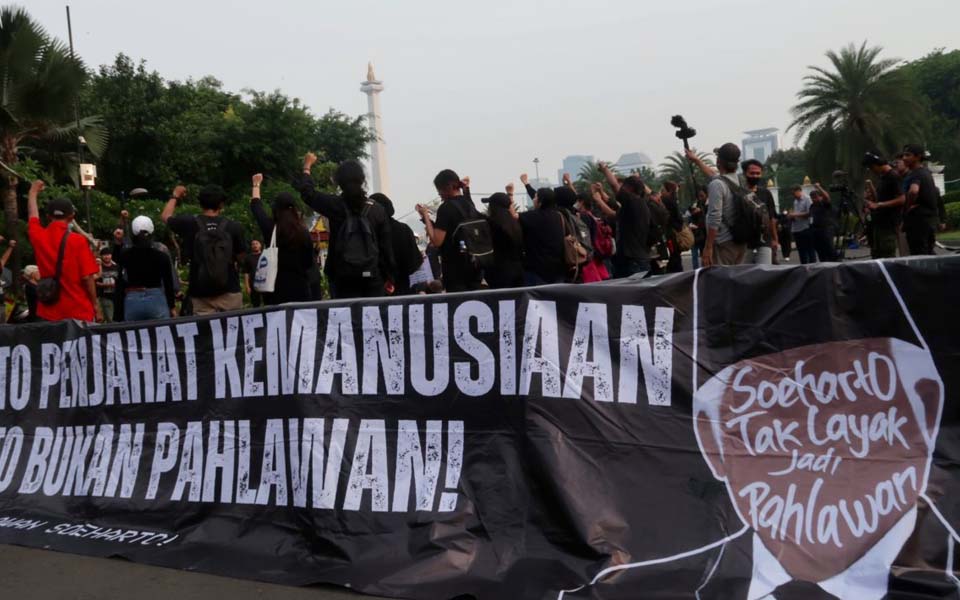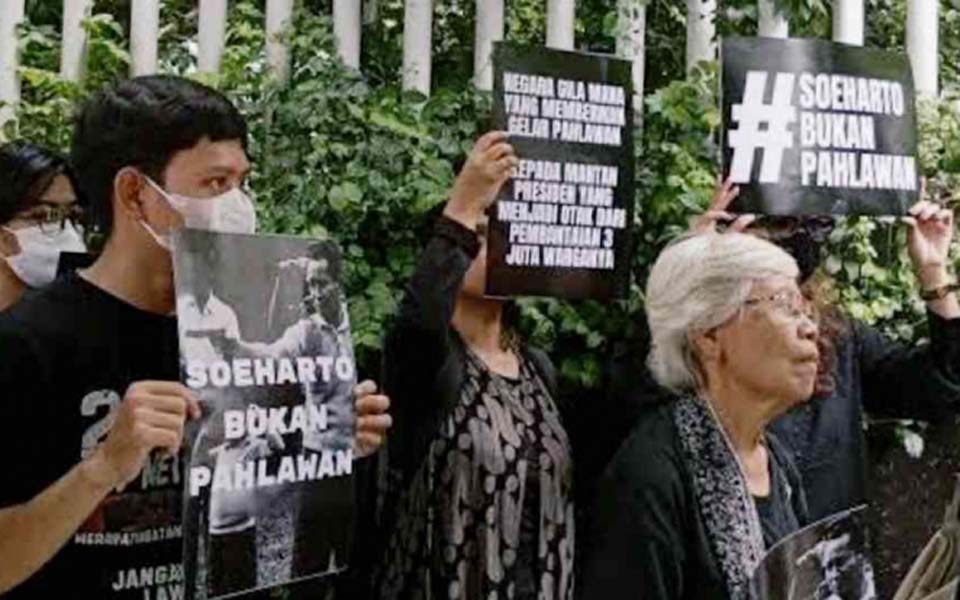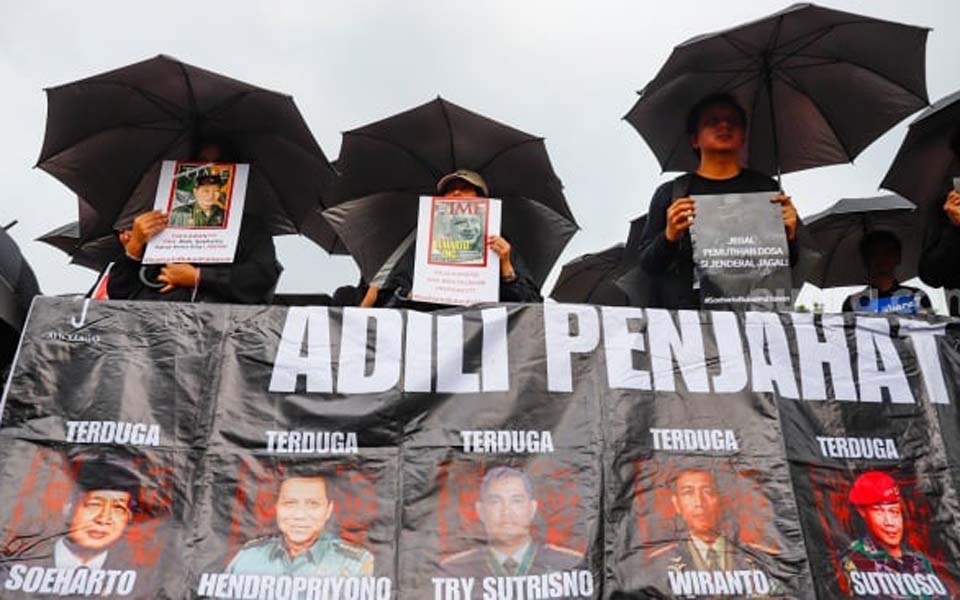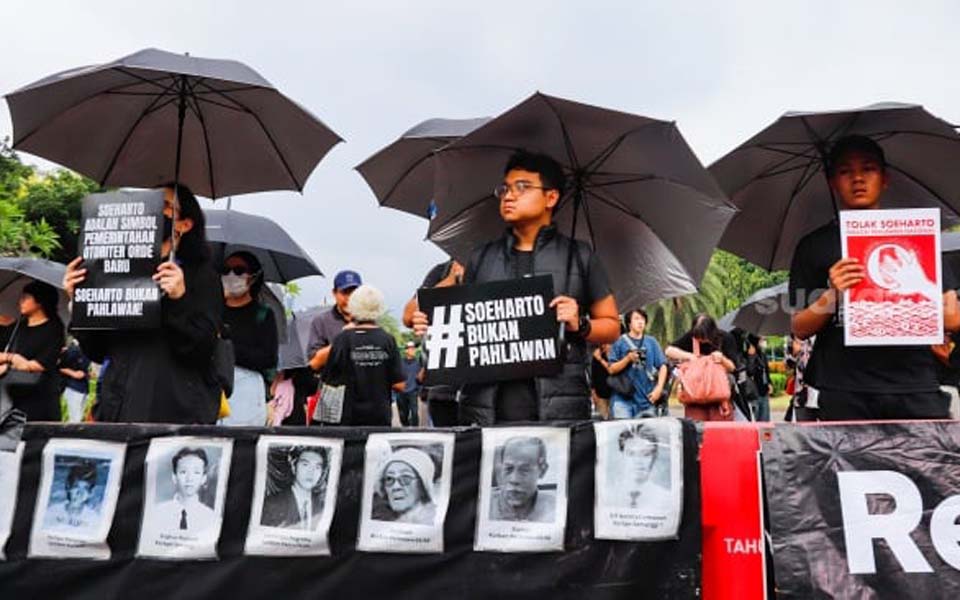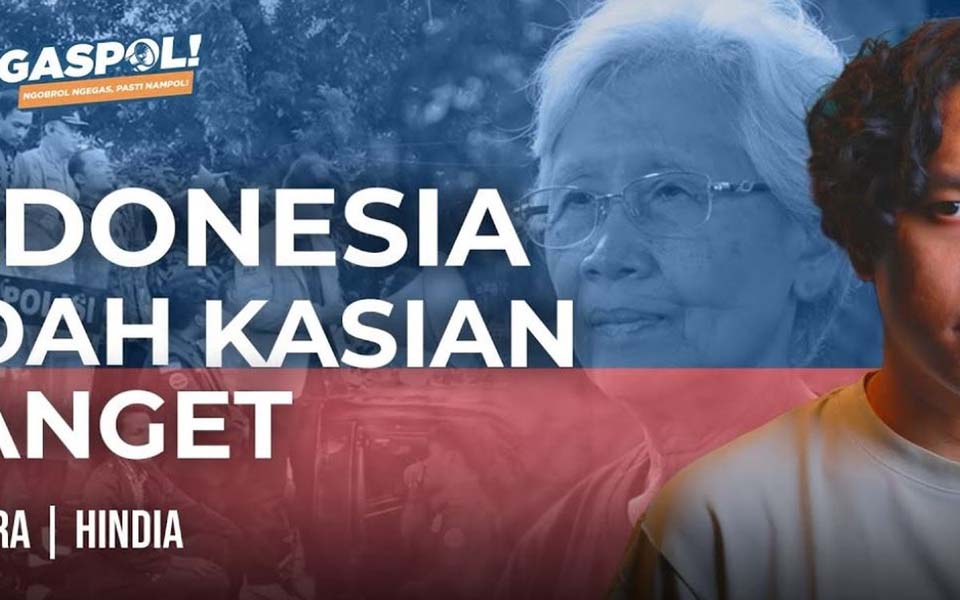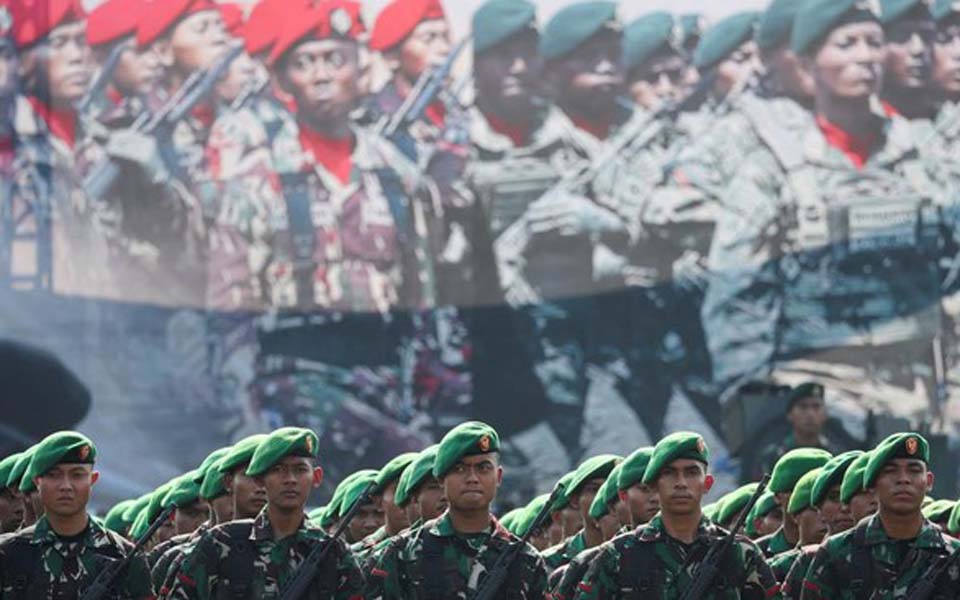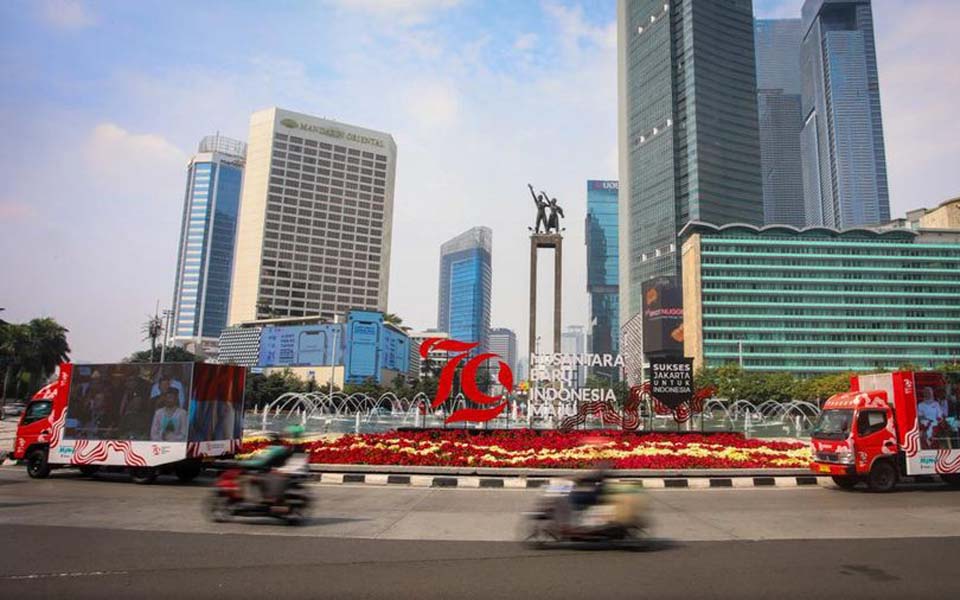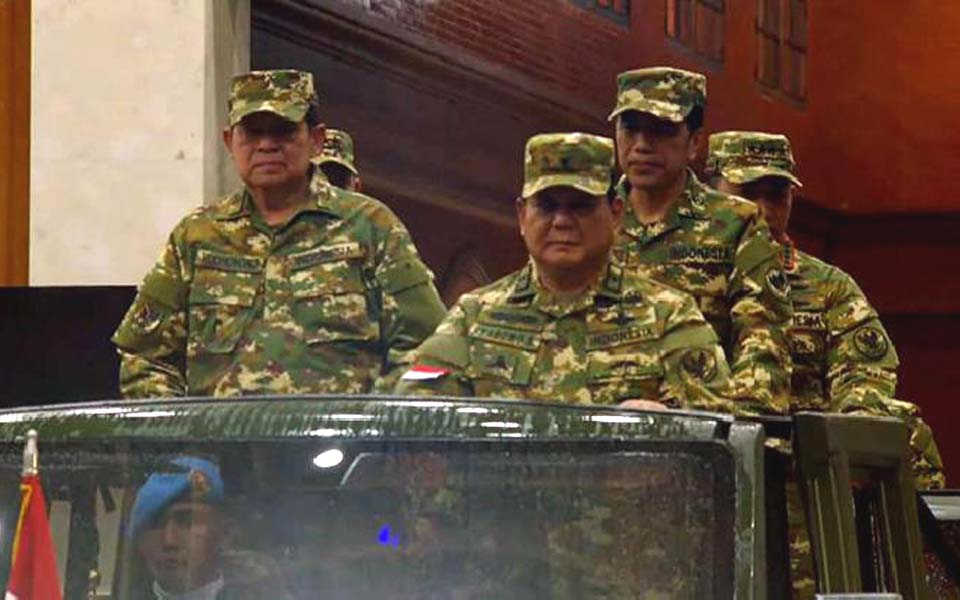Although formally, the regulations and institutions for upholding human rights in Indonesian have made progress, in practice this is still far from the expectations of society. The legal impasse in handling cases of gross human rights violations which involve security personnel has become a measure which the public uses in assessing the progress made in upholding human rights.
This conclusion was summarised in a Kompas survey in ten Indonesian cities between July 23-24, which specifically evaluated the implementation of human rights in the country. In the survey, the majority (82 per cent) of respondents expressed dissatisfaction with government efforts to uphold human rights. In a number of domestic investigations of cases of human rights violations during the period of the previous government [of former President Suharto, respondents believed that] there has clearly not been enough progress.
Cases which have become a focus of public attention include the May 1998 riots along with the shooting of students from the Trisakti University(1) and the Semanggi incident in Jakarta (1999)(2). In evaluating the investigation of human rights violations, 84 per cent of respondents were dissatisfied with the government’s efforts.
Other cases of human rights violations are those involving separatism such as in the provinces of Aceh and West Papua. Although a number of cases have been concluded by the courts, the public is still calling for the full truth to be revealed. No less than 78 per cent of respondents in the survey were concerned about the government’s efforts in handling such cases.
Weakness in upholding human rights has also occurred in political cases such as the attack on the headquarters of the Indonesian Democratic Party (PDI) on July 27, 1996. Although human rights violations were perpetrated which indirectly fell on the general chairperson of the PDI at that time, Megawati Sukarnoputri, the case has yet to be heard in court, even though the incident is now seven years old. It is not surprising that public mistrust has also strengthened. Most of the respondents (79 per cent) are not satisfied with the handling of this case.
It is the series of cases which have yet to be dealt with which gives people in society a pessimistic view of the government. The Megawati government is also viewed as not being serious about upholding human rights.
This public pessimism toward the government represents a clear indication of a decline in trust. This can be seen from current perceptions compared with the results of a Kompas survey at the beginning of 2003 which revealed that there was still a small amount of public optimism towards the Megawati government.
At that time, respondents who believed that the government was serious in handling cases of gross human rights violations was still 46 per cent with 41 per cent believing it was not serious. Now, those who believe that [the government] is not serious has increase to 64 per cent of respondents. This time, only 26 per cent of respondents believe the government’s efforts are serious.
In fact [the issue of protecting] values of human rights in this country is not a new thing. These values surfaced in 1945, after they were formalised in the 1945 Constitution. Following this, human rights values were officially institutionalised though the National Human Rights Commission (Komnas HAM) in 1993. Moreover today, systematic efforts [to uphold human rights] have increased with the formation of a special human rights court though Law Number 26/2000.
As suspected however, in practice this has not run properly. It is not only the executive [branch of government] that has become of concern to the public. Komnas HAM has also drawn public attention.
The was shown by the negative assessment of this institution which was revealed in the survey. No less than 56 per cent of respondents said that these days, Komnas HAM is no longer serious about handling investigations of human rights cases. Only 33 per cent still believed that the institution was working seriously.
This is because the official state institution which deals with human rights has lost [the people’s] trust. This can be seen from the failure of this institution to summon a number of key witnesses among which are ex-TNI [Indonesian military] officers. This indicates that fact that this institution, as an upholder of the law, is still unable [to persecute cases] when they concern members of the security forces.
The facts indicate that the reality is that the majority of those who have become suspects in cases of gross human rights violations are members of the TNI or police.
Aside from Komnas HAM, the judiciary was also an issue of concern. In this case, it is an issue of the judges who handle cases of human rights violations. According to public perceptions, human rights courts are not viewed as being independent. This is even more so if the case involves members of the military or police. This was also revealed in the survey. Seventy seven per cent of respondents believed that judges are not free from intervention by other parties. For the public, a case in point was the release of a number of members of TNI and the police in the trails of human rights violations following the referendum in East Timor (1998).
On the other had, in their daily lives, the respondents complained about the uniformity of injustice in a number of other cases. This dissatisfaction in the end has caused society to be increasingly disappointed with the implementation of human rights in Indonesia.
In a September 2001 survey [conducted by Kompas], respondents who considered the human rights situation in Indonesia to be unfavorable was as high as 63 per cent. Now the proportion of respondents who consider it to be unfavorable has increased to 72 per cent.
Five years ago, the public’s high expectations on the protection of human rights in the era of reformasi has now culminated in pessimism. Moreover, on the government of President Megawati, who’s term will end next year, the public has no trust. No less than 70 per cent of respondents are not convinced that the government can thoroughly investigate human rights violations [which have occurred] in Indonesia. (Ignatius Kristanto/ Litbang Kompas)
Notes
1. On May 12, 1998, security personnel shot into a crowd of student protesters from the Trisakti University near their campus in West Jakarta, killing four students and injuring several. This proved to be the spark which set-off three days of mass demonstrations and rioting in Jakarta which eventually lead to the overthrow of former President Suharto.
2. On November 13, 1998, troops opened fire on demonstrators from the Atmajaya University in Jakarta using rubber bullets and live ammunition in the area of Semanggi, South Jakarta, resulting in the death of more than 10 student demonstrators.
[Translated by James Balowski]






